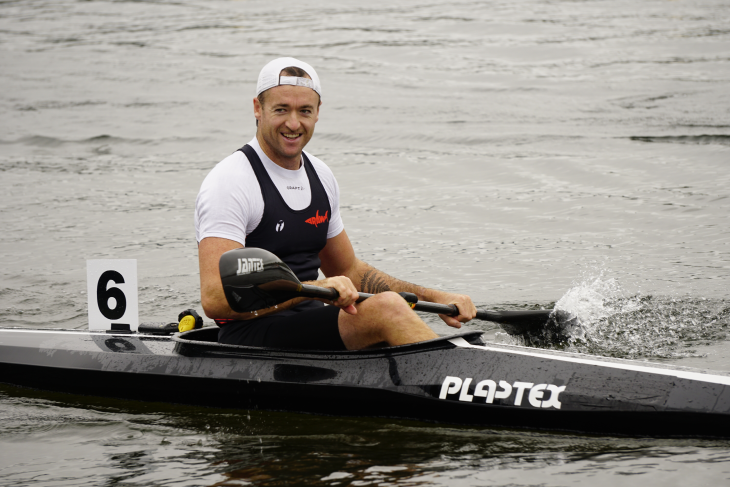Anna’s story: Finding herself on the world stage
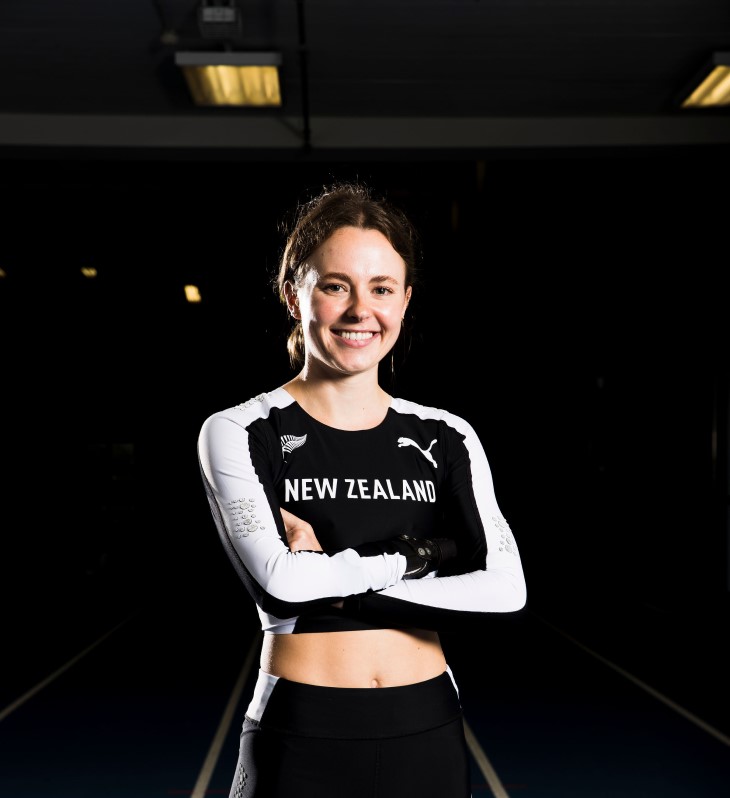
Paralympics double gold medallist Anna Grimaldi is in the prime of her career and is hoping to see others follow in her footsteps through the ACC-supported LevelUp, a series of online resources for coaching disabled athletes.
For the past seven years, Paralympics star Anna Grimaldi has battled with imposter syndrome.
The 26-year-old from Dunedin achieved incredible and rapid success on the world stage as a Para T47 long jumper and her mind has taken some time to catch up.
Her trip to the Para Athletics World Championships in Paris last July was ‘life-changing’.
“I’ve come full circle,” says a carefree Anna, while sipping a post-training smoothie.
“I now feel comfortable with saying, ‘You know what, I’m a two-time Paralympic champion. I’m one of the best in the world. I’m really good at long jump, and I’m fast too.’ I hadn’t given myself permission to do that and believe it before.”
Anna started long jump only in 2013 when she received an email from Paralympics New Zealand inviting her to attend an athletics identification event. She decided to give it a go after some encouragement from Paralympics New Zealand team manager Raylene Bates.
Remarkably, three years later, Anna found herself on top of the podium with a gold medal around her neck at the Rio 2016 Paralympics.
Four years on, after suffering a myriad of setbacks including a stress fracture to her foot, Anna successfully defended her Paralympics gold medal at the COVID-19-affected Tokyo Paralympics.
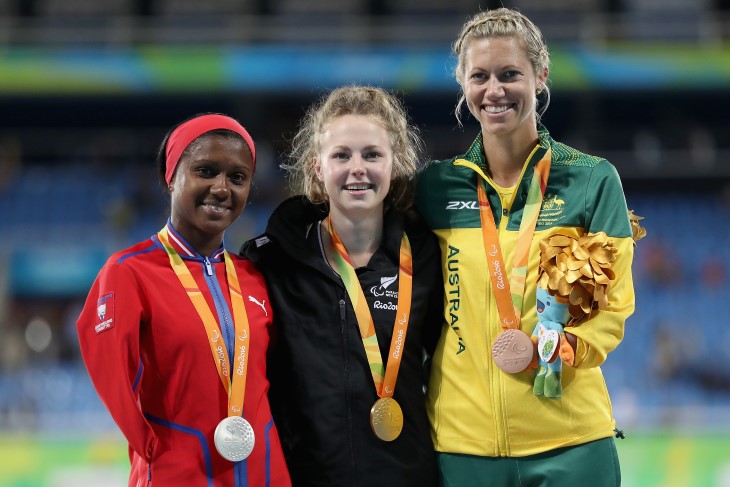
Anna Grimaldi with her fellow medallists at the 2016 Paralympics in Rio.
ACC provides support in return to action
The injury to her foot led to one of the most challenging periods of Anna’s young life.
“It was such a tough time, physically but also mentally,” she admits.
“It was hard going from a career high to a career low, all in the space of a year. The hardest part was my lack of confidence, I was meant to be a gold-medallist long-jumper but I could hardly do anything.”
Anna began to question whether she would ever be able to jump again.
“I couldn’t see the light at the end of the tunnel for a while,” she says.
“The time to get back to competition was meant to be six months but it ended up being closer to two years.”
The assistance provided by ACC was a big help in getting her through the rehabilitation. The likes of physio, podiatry and orthotics were all taken care of, allowing Anna to focus on getting back to her best.
A place in history beckons
Having come out the other side of her injury nightmare, Anna now has the chance to join the very elite of New Zealand Paralympians. In Paris next year, Anna will have the opportunity to win her third consecutive gold medal.
There are only two New Zealand Paralympians who have achieved that feat in track and field.
They are Eve Rimmer, who won 14 medals from 1968 to 1980 (in javelin, shot put, pentathlon and discus) and claimed four gold medals in consecutive Paralympics, and Peter Martin, who won three golds in a row in the shot put from 1996 to 2004.
Anna is on the cusp of greatness – but it’s been a battle so far.
“I was deeply uncomfortable with the fact that I’d been so successful, so early in my career,” she says.
“I felt like I wasn’t what a gold medallist should look like, how they should be training, how they should hold themselves and how they should talk and their experience. I didn’t feel like I fitted any of those supposed boxes that I felt I needed to be checked to be a gold medallist.”
Anna didn’t relish the Tokyo 2020 Paralympics experience. Even though she won gold, she was overcome by the pressure she’d put on herself.
“Tokyo was the most stressed I’ve ever been in my life,” she says.
“I couldn’t even string a sentence together. I was so nervous, I was looking for places to vomit mid-competition. I felt like Rio was a fluke and I was so determined to prove myself wrong.”
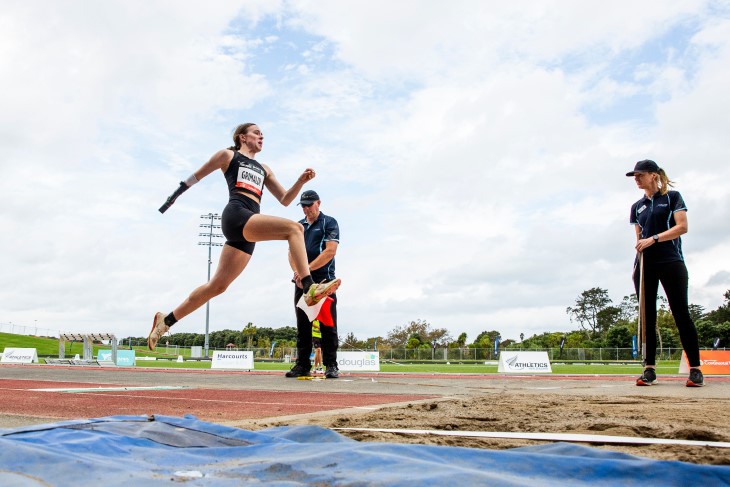
The experience of a lifetime
If she had another experience like Japan, Anna says she would’ve walked away from the sport.
But after the best trip of her life – with six other New Zealand Para athletes to the World Championships – she feels free.
“It was good to unpack what that journey was like for me and the sort of experiences that came from winning,” she says.
“And my relationship with winning – how unusual it can be to struggle with being successful and why.
“I have a renewed sense of love for what my body can do. I’m excited I can push it to new levels. And I think that tour was like a part of finding myself again, and finding my love for the sport and all of the experiences it can offer, beyond the medals and success.”
When Anna lined up at the World Champs, she felt comfortable with the fact she might not win.
“I ended up having the most successful tour of my life, regardless of the results. It was the most freeing thing I’ve ever felt in my life,” she says.
“Being content with what you feel about yourself, your ability and what your body can do, that’s more than a gold medal could ever offer me.”
A weight off her shoulders
There is irony in her self-discovery. She is now in a better position to win on the world stage than ever before.
“I feel like the weight of the world has lifted off my shoulders – I don’t feel this claustrophobic sense of expectation,” she says.
“I’m proud of where I've come from and what I’ve achieved. It’s taken me a long time to be able to say that.”
As part of her journey, Anna recently parted ways with longtime coach Brent Ward. Her strength and conditioning coach of nine years, Michael Jacobs, is now her head coach.
“The training is really different and it’s pushing me further, both physically and mentally, than I’ve gone in the past. Mikey and I are on the same page with how we want to approach the next year and beyond, and that really excites me,” she says.
“You can’t know everything. But there are people out there that know the things that you don’t know. That’s what sets Mikey apart, he’s a master collaborator.
“But Wardy is also awesome and I loved my time working with him. He set me up to really enjoy athletics.”
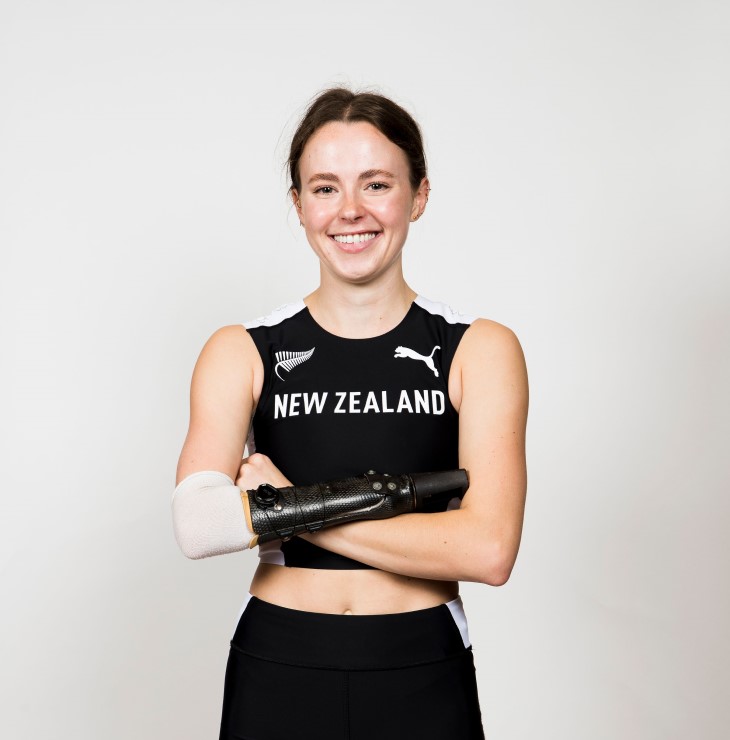
LevelUp offers education to coaches
Anna says it’s great to see Paralympics New Zealand invest in resources to help people gain the skills and confidence to coach disabled athletes.
LevelUp, which is supported by community partner ACC, is a new series of online modules for sports coaches.
“Everyone is different, and you have to be adaptable in how you coach,” Anna says.
“That’s where this resource can be cool for knowing how to approach different areas or situations.
“You want everyone getting into Para sport to be comfortable because then they will be confident to give it a go. And you don’t know where that moment will lead.”
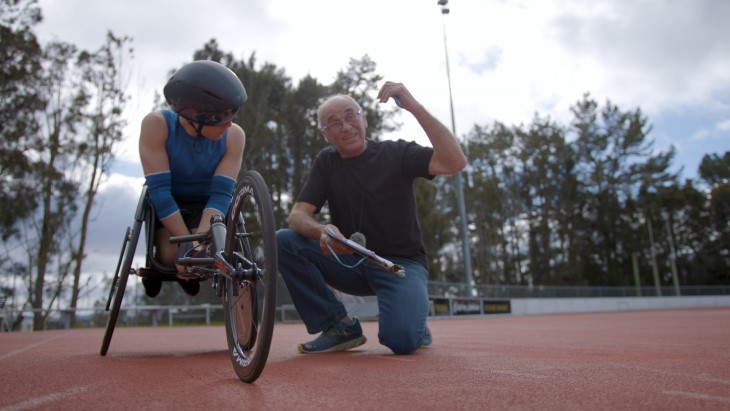
A coach talking to a Para athlete during a training session.
The importance of being yourself
Anna, who was born without her right hand, has excelled against the odds.
She attended Bayfield High School in Dunedin and played netball and basketball for the school. In her final year, she was a sports prefect.
One of her first memories of being awkward about having one hand was in primary school. She’d always wear long sleeves or clothing that had pockets in them so she could hide her stump.
“One day at school, I didn’t have my hoodie and my friend Jemma let me put my stump in her pocket. For some reason, that made me feel more comfortable than having someone else know I had one hand.”
Her advice to other young people is not to waste energy trying to be something you’re not. She says it will eventually catch up to you.
“It’s more fun to be yourself. Pretending I had two hands didn’t change the fact I only had one. It just made it harder to live with the one hand I had,” she says.
“Take the opportunities when they come up and present your authentic self to them, because you don’t want to look back and have regrets.”
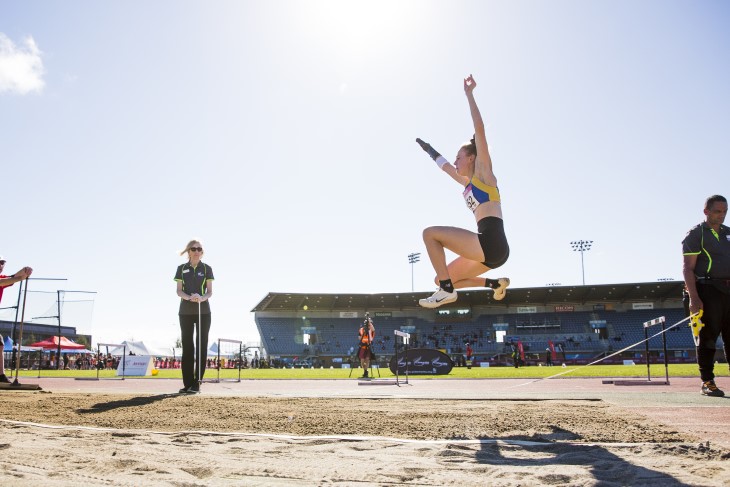
What is LevelUp?
- LevelUp is a series of online modules for coaching disabled athletes, no matter whether you’re just starting out or want to grow your skills.
- It’s a free and accessible training course for coaches. It’s available on the Sport New Zealand learning platform, Sport Tutor. That means you can learn in your own time, at your own pace.
- LevelUp resources are made up of nine modules. Once you complete the first two modules, it will unlock seven additional impairment-specific modules.
More information is available on the Paralympics NZ website.





